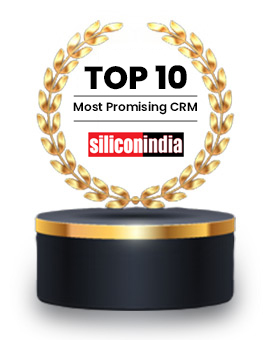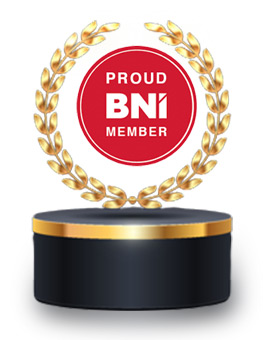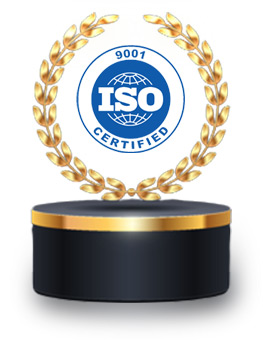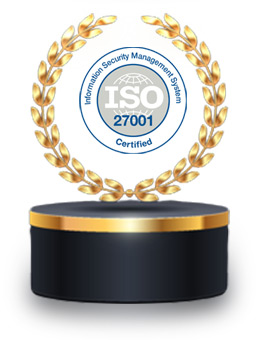In the ever-evolving landscape of modern business, the importance of a robust Customer Relationship Management (CRM) system cannot be emphasized enough. While many businesses recognize the value of CRM, there are still some that have yet to fully harness its power.
The adoption of a resilient and adaptable Customer Relationship Management (CRM) system has moved beyond optional to become a fundamental cornerstone of success. Though a significant number of businesses have recognized and leveraged the multifaceted capabilities of CRM, there still exists a segment of enterprises that have yet to embrace this transformative path.Amidst dynamic market trends, heightened customer expectations, and rapidly evolving technologies, the fusion of CRM and marketing has transitioned from a strategic advantage to an indispensable necessity.
Data Centralization:
Centralized customer data is the cornerstone of CRM. This central repository includes purchase histories, communication preferences, feedback, and other vital information. With this comprehensive view, marketers can meticulously segment their audience, enabling the creation of highly targeted campaigns that deeply resonate with individuals.
CRM automation epitomizes the craft of creating significant and personalized customer interactions by strategically leveraging data.


Personalized Content:
In a time when generic communication strategies prove inadequate, CRM emerges as a tool for facilitating personalized content creation. By harnessing data-driven insights, marketers can tailor messages to address specific pain points and aspirations of each individual. This personalized approach helps establish emotional connections, ultimately nurturing brand loyalty and advocacy.
. By harnessing data-driven insights, marketers can tailor messages to address specific pain points and aspirations of each individual. This personalized approach helps establish emotional connections, ultimately nurturing brand.
Dashboard and Analytics:
The analytical capabilities of CRM systems empower marketers with instant insights into campaign performance and customer behaviors. Through dashboards, critical metrics are visualized, allowing marketers to track progress and adjust strategies on the fly. Data-driven decision-making fuels adaptive marketing approaches that result in higher ROI.This central repository includes purchase histories, communication preferences, feedback, and other vital information. With this comprehensive view, marketers can meticulously segment their audience, enabling the creation of highly targeted campaigns that deeply resonate with individuals.businesses looking to leverage the potential of CRM to enhance their marketing endeavors.

Team Collaboration:
Successful marketing relies on smooth collaboration among departments. CRM platforms break down silos by offering a shared workspace for teams to collaborate, share insights, and coordinate efforts. By aligning sales, marketing, and customer service teams, a cohesive customer journey is ensured, from initial contact to ongoing support.
CRM automation epitomizes the craft of creating significant and personalized customer interactions by strategically leveraging data.
CRM Lead Management:
A key strength of CRM lies in its ability to revolutionize lead generation. Automated lead nurturing guarantees that no potential opportunity goes unnoticed. By employing lead scoring, marketers can prioritize leads with the greatest conversion potential, resulting in optimized resource allocation and enhanced conversion rates.
Through the capture, analysis, and utilization of customer information, CRM empowers marketers with the insights necessary to craft campaigns that are not only appealing but also pertinent and timely.In a time when authenticity and relevance are paramount to customers, CRM isn't merely a tool—it serves as the guiding compass for marketers striving to deliver exceptional customer experiences.
The Power of CRM in Marketing:
In a competitive environment shaped by ever-changing consumer preferences, the integration of CRM into marketing strategies stands out as a pivotal game-changer. Let's delve into how CRM can revolutionize your marketing efforts, harnessing the following elements.By consolidating data, refining lead management, facilitating tailored communication, and delivering data-driven insights, CRM significantly elevates marketing efforts.
It represents the comprehensive approach of viewing every customer interaction as a stroke on the canvas of brand perception. Through the capture, analysis, and utilization of customer information, CRM empowers marketers with the insights necessary to craft campaigns that are not only appealing but also pertinent and timely.

Conclusion:
In essence, the collaboration between CRM and marketing acts as a powerful driver for contemporary business expansion. By consolidating data, refining lead management, facilitating tailored communication, and delivering data-driven insights, CRM significantly elevates marketing efforts.heightened customer satisfaction, and a competitive advantage in the market.
By incorporating CRM into marketing strategies, businesses pave the way for sustained growth, heightened customer satisfaction, and a competitive advantage in the market. It's crucial to recognize that each phase of the CRM journey holds the potential to influence a customer's perception of the brand.With the adoption of CRM solutions, businesses arm themselves with a formidable tool that not only streamlines operations but also enriches their understanding of customers. The amalgamation of CRM and marketing signals a shift in business methodologies, emphasizing the importance of informed decision-making and personalized interactions.












